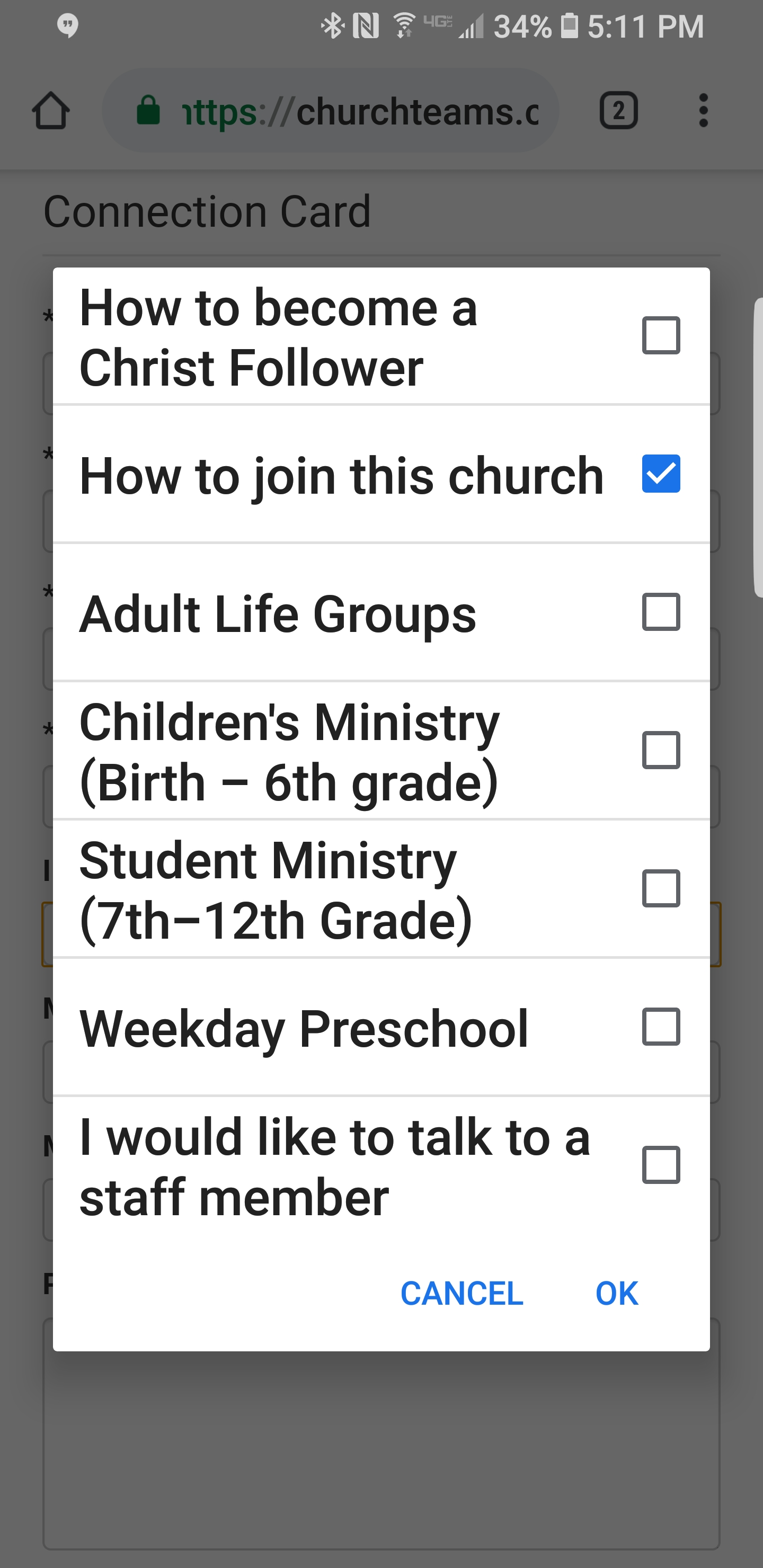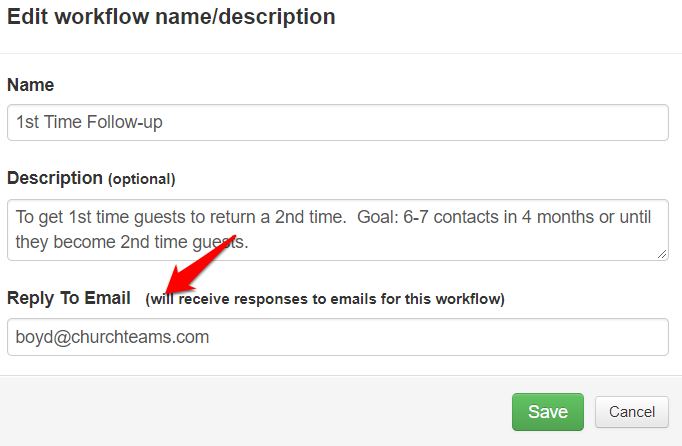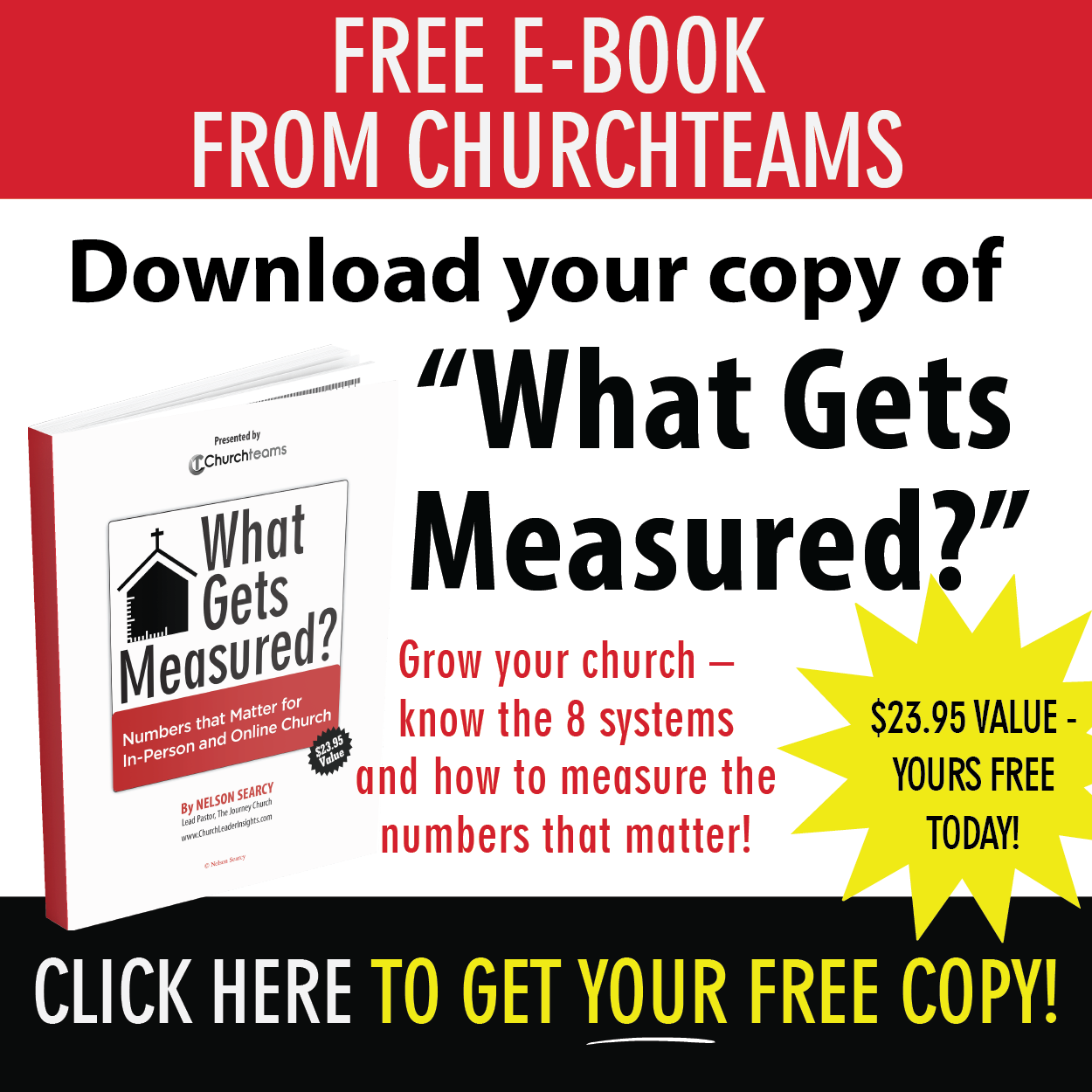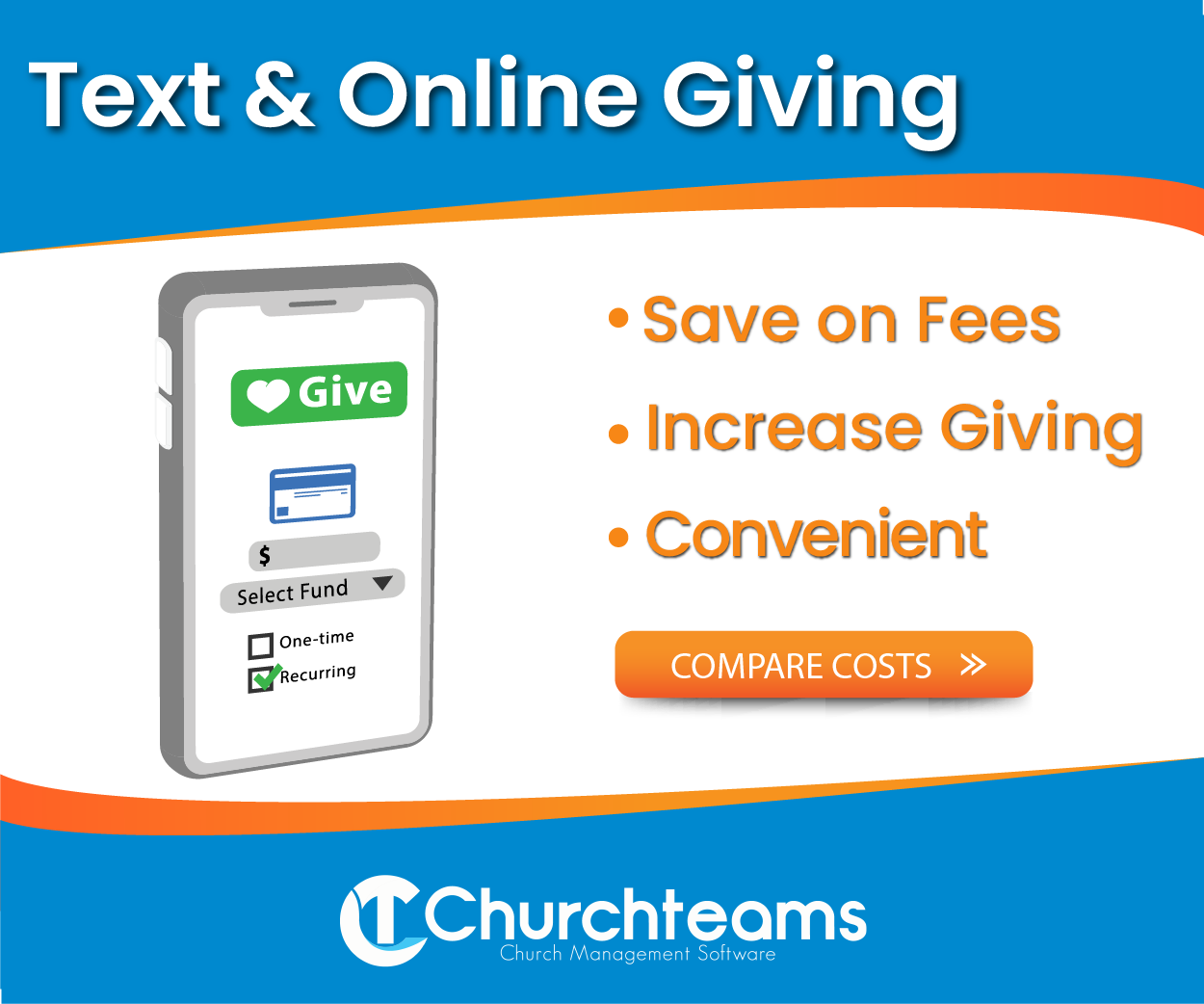You know the story of the lost sheep in Luke 15? It's about how God is like a good shepherd who recognizes that a sheep is missing and drops everything to go find it. You know how he recognized one was missing? He counted.
One of the trends we are seeing is churches offering an option on their website for people to prepare for their visit. This blog will address this new trend. First a few ideas on the concept and then suggestions on how to use Churchteams registration to implement this strategy.
Tags: Automation
You spend a lot of time planning for holidays, ministry seasons, church-wide campaigns and sermon series. Let Workflow Automation make these times pop. Use them to make key ideas and habits sticky.
Tags: Automation
Here is an updated Knowledge Base Article with more details
Ready to go paperless with your connection card? Or at least give a mobile option for people to respond? What if that digital connection could then be customized to launch a workflow with personalized responses and follow up assignments? Here’s how to make it happen. You’ll want a copy of your card to help set this up.
Tags: Automation
If God has graced you with the gift to pastor, plant, staff or lead a church; you carry the weight of founding and building people in their faith. Becoming a skilled master builder is your goal.
Tags: Automation
As you think about your assimilation process for guests, you'll want to decide if it makes sense to create a second or even third time guest workflow.
Tags: Automation
A church executes its vision by developing a strategy. But, whether or not that strategy succeeds is determined by how well a church uses its software.
The most obvious use of workflows is to follow up people who have visited your church for the first time. You want to make them feel welcome, answer any questions they might have and invite them back. The goal of this workflow is simple: get people to come a second time.
Tags: Automation
NED gives you the power to communicate in a bold, fresh, new way. He offers those of us who don't know how to code the ability to create incredible emails and email templates. And we just released him into the Churchteams application. NED is our Next generation EDitor. If you haven't met him already, let me introduce you
Tags: New Release, Communication
Ready to use our Church Management System to automate some of those important but repetitious administrative, communication and follow-up tasks? Workflows are here to help.
Tags: Automation
We're Putting Our Church Management Software on Trial for Your Review
We offer a 30 Day Free Trial of our Church Management Software because confidence in choosing the tool that will be the back-end server of your entire ministry is extremely important. Feel free to use the trial as an opportunity to occasionally login and play around to get a feel. But, here are some ideas on how to make sure the trial gives you the results you really want.












